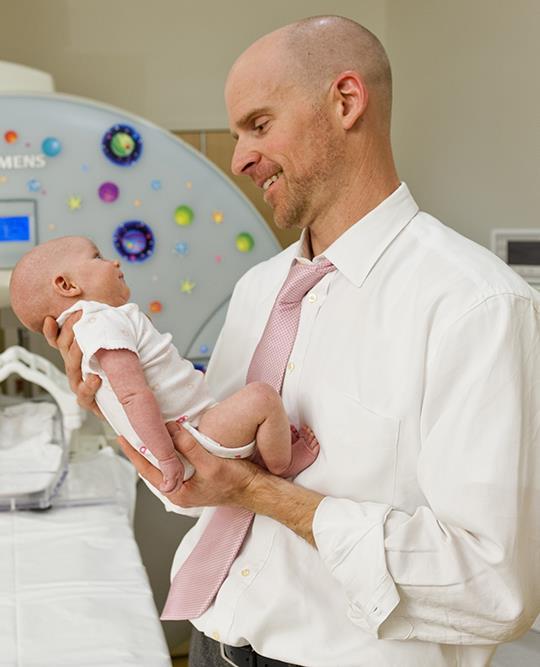- Doctors & Departments
-
Conditions & Advice
- Overview
- Conditions and Symptoms
- Symptom Checker
- Parent Resources
- The Connection Journey
- Calm A Crying Baby
- Sports Articles
- Dosage Tables
- Baby Guide
-
Your Visit
- Overview
- Prepare for Your Visit
- Your Overnight Stay
- Send a Cheer Card
- Family and Patient Resources
- Patient Cost Estimate
- Insurance and Financial Resources
- Online Bill Pay
- Medical Records
- Policies and Procedures
- We Ask Because We Care
Click to find the locations nearest youFind locations by region
See all locations -
Community
- Overview
- Addressing the Youth Mental Health Crisis
- Calendar of Events
- Child Health Advocacy
- Community Health
- Community Partners
- Corporate Relations
- Global Health
- Patient Advocacy
- Patient Stories
- Pediatric Affiliations
- Support Children’s Colorado
- Specialty Outreach Clinics
Your Support Matters
Upcoming Events
Colorado Hospitals Substance Exposed Newborn Quality Improvement Collaborative CHoSEN Conference (Hybrid)
Monday, April 29, 2024The CHoSEN Collaborative is an effort to increase consistency in...
-
Research & Innovation
- Overview
- Pediatric Clinical Trials
- Q: Pediatric Health Advances
- Discoveries and Milestones
- Training and Internships
- Academic Affiliation
- Investigator Resources
- Funding Opportunities
- Center For Innovation
- Support Our Research
- Research Areas

It starts with a Q:
For the latest cutting-edge research, innovative collaborations and remarkable discoveries in child health, read stories from across all our areas of study in Q: Advances and Answers in Pediatric Health.


Inflammatory Bowel Disease Center
Inflammatory Bowel Disease in Children
We treat kids like they should be treated: like kids. That’s why we designed our hospital just for them.

What is inflammatory bowel disease?
Inflammatory bowel disease, or IBD, is a chronic inflammatory disorder that can affect any part of the digestive system, including the mouth, esophagus, stomach, small intestine, large intestine and anus. IBD is a general term used to describe any of these disorders:
- Crohn's disease: inflammation, scarring or infection of the digestive tract
- Ulcerative colitis: tiny sores called ulcers develop along an already inflamed large intestine
- IBD undetermined or indeterminate colitis
- Very early onset IBD (children under 6 years old)
IBD is not the same as irritable bowel syndrome, or IBS, a disorder that affects the muscle contractions of the large intestine. People with IBS do not experience chronic intestinal inflammation and do not have damage to the intestinal lining.
What causes inflammatory bowel disease in children?
Research indicates that both genetic and environmental factors may play a role in IBD, but the exact cause of the condition is unknown. Stress and diet may worsen IBD but do not cause it.
IBD can be triggered when the body mistakes harmless bacteria — which help digest food — for harmful invaders. Cells travel out of the blood and into the intestines to produce inflammation. This is the body's way of trying to rid itself of the bacteria it thinks is bad. In people with IBD, the inflammation doesn't go away and can damage the lining of the colon and produce ulcers, which eventually cause noticeable symptoms.
Who gets inflammatory bowel disease?
Anyone can develop IBD, although the risk is greater if a close relative, such as a parent or sibling, also has the disorder. The disease can occur at any age, but in pediatrics, it is most common in children over the age of 10.
What are the signs and symptoms of IBD in children?
Symptoms may depend on the affected area and can vary from patient to patient. Specific symptoms of IBD in kids may include:
- Persistent diarrhea
- Rectal bleeding
- Urgent need to poop
- Abdominal cramps and chronic pain
- Sensation of incomplete poops
Other general symptoms of IBD in kids can include:
- Fever
- Loss of appetite
- Weight loss or poor weight gain
- Tiredness
- Night sweats
- Recurrent mouth sores
- Achy or swollen joints
- Delay in puberty
- Loss of normal menstrual cycle
IBD symptoms are likely to come and go, and children may experience periods of remission — months or years without symptoms. But because IBD is a lifelong condition, symptoms will return.
IBD can also affect the liver, skin, joints, bones, bile ducts and eyes. Contact a pediatric gastrointestinal doctor if your child is showing signs of IBD.
What tests are used to diagnose inflammatory bowel disease?
An accurate diagnosis of IBD typically requires multiple tests that may include the following:
- Medical history review and physical assessment: a check of height, weight, eyes, ears, mouth, heart, lungs and abdominal region, as well as an anal exam
- Upper intestinal endoscopy and colonoscopy with biopsies: procedures that use a thin, flexible tube with a lighted camera on the end to view linings of the digestive system; tissue samples are taken for lab testing
- Blood tests: a sample of blood is used to identify liver and kidney function, protein stores, iron and vitamin D, as well as other important minerals that could support a diagnosis
- Stool tests: a sample of poop can help rule out infection and assess for inflammatory cells
- MR enterography: A special type of magnetic resonance imaging (MRI) that produces detailed pictures of the affected area of the digestive system
- Video capsule endoscopy: a technique used to capture internal images of the digestive system
At Children's Hospital Colorado, our Pediatric Inflammatory Bowel Disease Center works exclusively with kids. We understand the ways kids are different from adults, and we're able to offer more specialized diagnosis. For instance, a child's vital signs and test results look different. Our experts know this, and it helps them more accurately evaluate and diagnose IBD in children.
How is inflammatory bowel disease treated?
We treat IBD in a variety of ways depending on severity. Medication is the most common form of treatment. There are several types of medication, and we select the best fit based on your child's specific needs. Because IBD is a chronic condition, children often continue with medication through adulthood.
Good nutrition is also important for treatment of IBD, and our pediatric dietitians help you and your child learn to maintain a healthy diet.
In severe cases of IBD, your child's treatment plan may recommend surgery. Our pediatric IBD surgeons are experts in their field.
And finally, our digestive specialists continually evaluate new treatment methods and therapies for IBD in children through participation in clinical trials and research studies.
Why choose Children's Colorado for inflammatory bowel disease treatment?
At the Digestive Health Institute our expertise and innovative approach to care is nationally renowned. Our Pediatric Inflammatory Bowel Disease Center is the only program in the region that participates in the ImproveCareNow collaborative, a community where patients, parents, clinicians and researchers work together to improve the lives of children with IBD.
We're also the only program in the region that offers a multidisciplinary treatment approach. This means our team includes experts from several different areas of medicine. Board-certified pediatric gastroenterologists, advance practice nurses, nurse coordinators, clinical social workers, dietitians, pediatric radiologists, surgeons, dermatologists, endocrinologists, psychologists and child life specialists equip patients and their families with the information and skills needed to manage IBD long term.
What is the difference between IBD and IBS?
Inflammatory bowel disease is not the same as irritable bowel syndrome. Irritable bowel syndrome is a disorder that affects the muscle contractions of the large intestine. Chronic intestinal inflammation is not a symptom of irritable bowel syndrome, but it is a symptom of inflammatory bowel disease.
Helpful resources
- The Crohn's and Colitis Foundation offers information and community support programs for patients and their families, as well as a summer camp experience called Camp Oasis.
- Take Steps is a fundraising and advocacy group for ulcerative colitis and Crohn's disease.
- GIKids.org provides useful educational material and links.
Next steps
-
Would you like to learn more about us?
Learn more about the Inflammatory Bowel Disease (IBD) Center -
Do you have questions about your child’s condition?
720-777-4600 -
Want a second opinion?
Get started

Compassionate care, wherever you are
We’re here when you need us. Telehealth appointments are available across every specialty, so you can get the high-quality care we’ve always offered from the comfort, privacy and convenience of home.
See if telehealth is right for you
Get to know our pediatric experts.

Edwin De Zoeten, MD
Gastroenterology - Pediatric

David Brumbaugh, MD
Gastroenterology - Pediatric

Samantha Woodruff, MD
Gastroenterology - Pediatric

Joel Friedlander, DO
Gastroenterology - Pediatric
Patient ratings and reviews are not available Why?



 720-777-0123
720-777-0123



